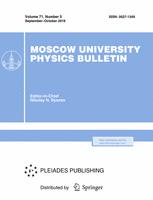The data in modern studies often have a huge volume, are distributed among numerous sites and are constantly replenished. In such cases, collecting all the research-related data on one computer is usually impossible and impractical, since one computer will not be able to process them in a reasonable time. A suitable algorithm for data analysis must, working in parallel on many computers, extract from each set of source data some intermediate compact "information", gradually combine it and finally use the accumulated information to obtain the result. As new data arrive, it should be able to add them to the accumulated information and, if necessary, update the result. The paper considers the features of such a well-organized intermediate form of information and its natural algebraic properties. As an example, the problem of transforming the optimal linear estimation procedure has been investigated so that individual fragments of the original data can be processed independently and in parallel. A canonical form of information is proposed that allows the algorithm to extract such information in parallel from each set of source data, combine it and use it to obtain the result. It is shown that on the constructed information space, in addition to the algebraic structure, the compatible ordering, which reflects the concept of information quality, is also induced.
89.70.+c Information theory and communication theory
$^1$Department of Mathematics, Faculty of Physics, M.V.Lomonosov Moscow State University.



